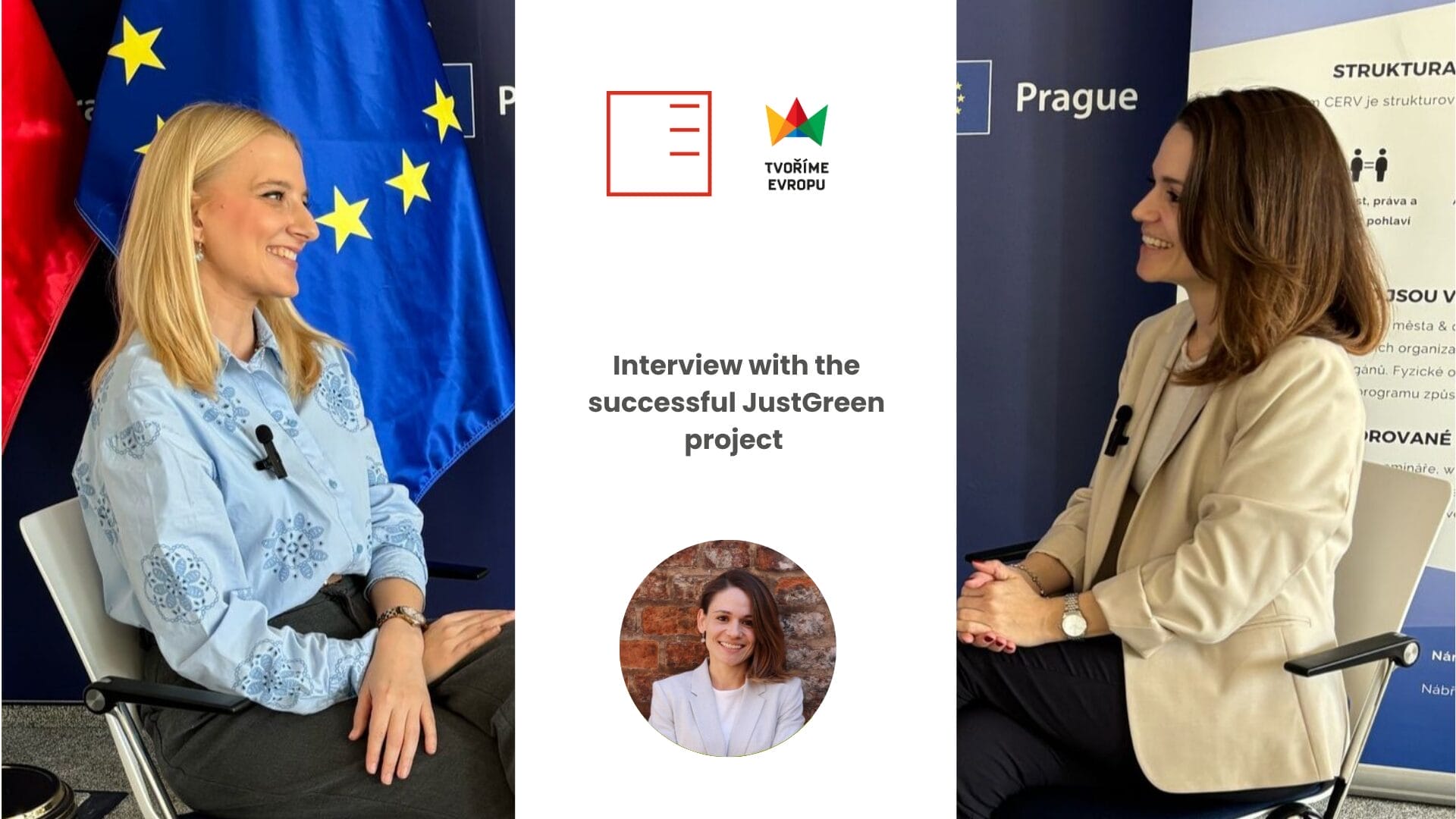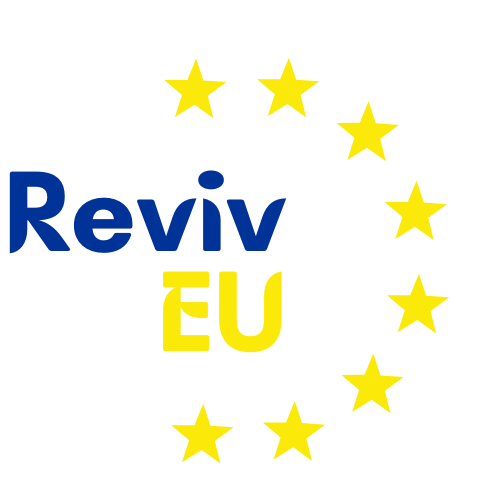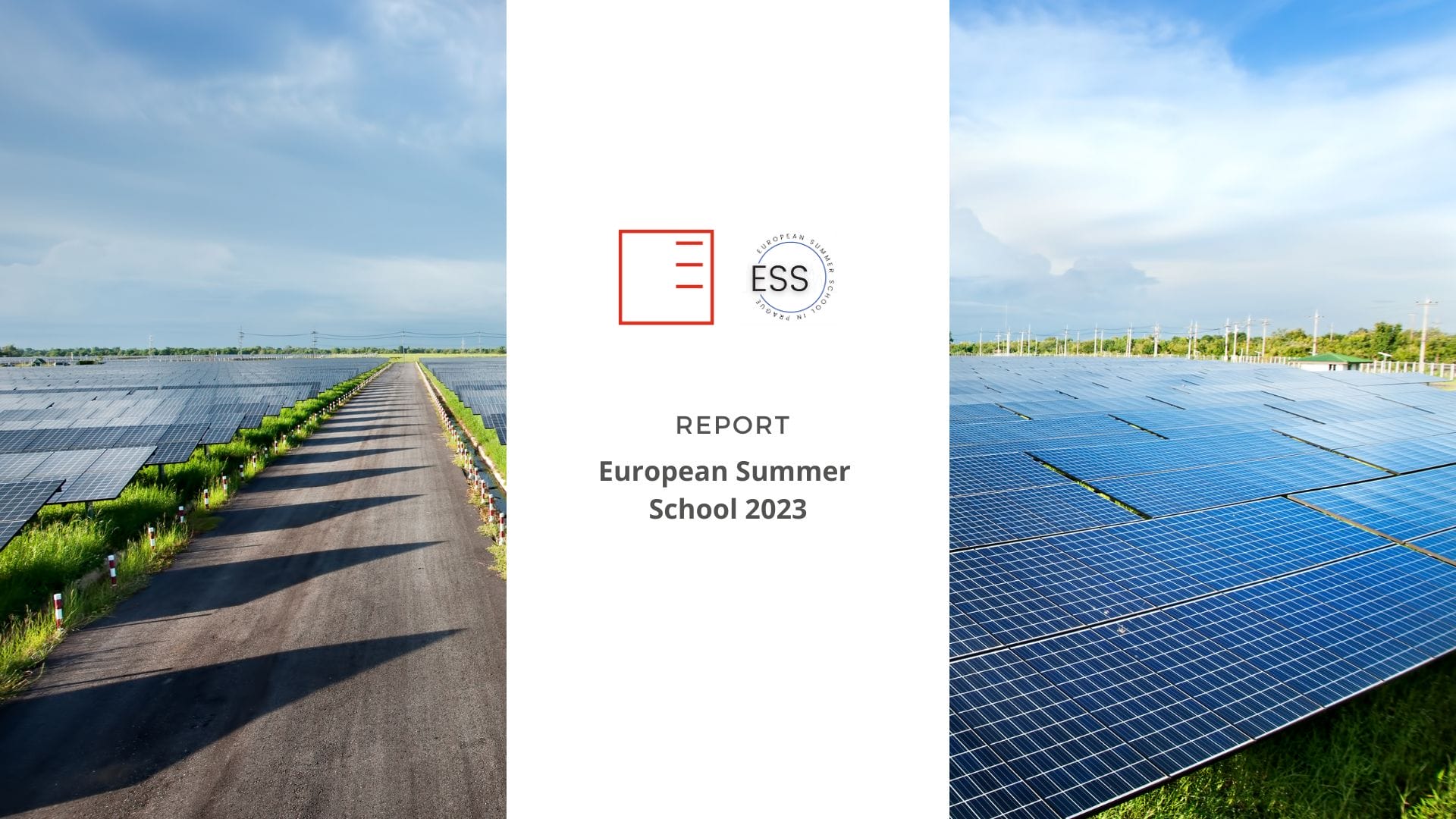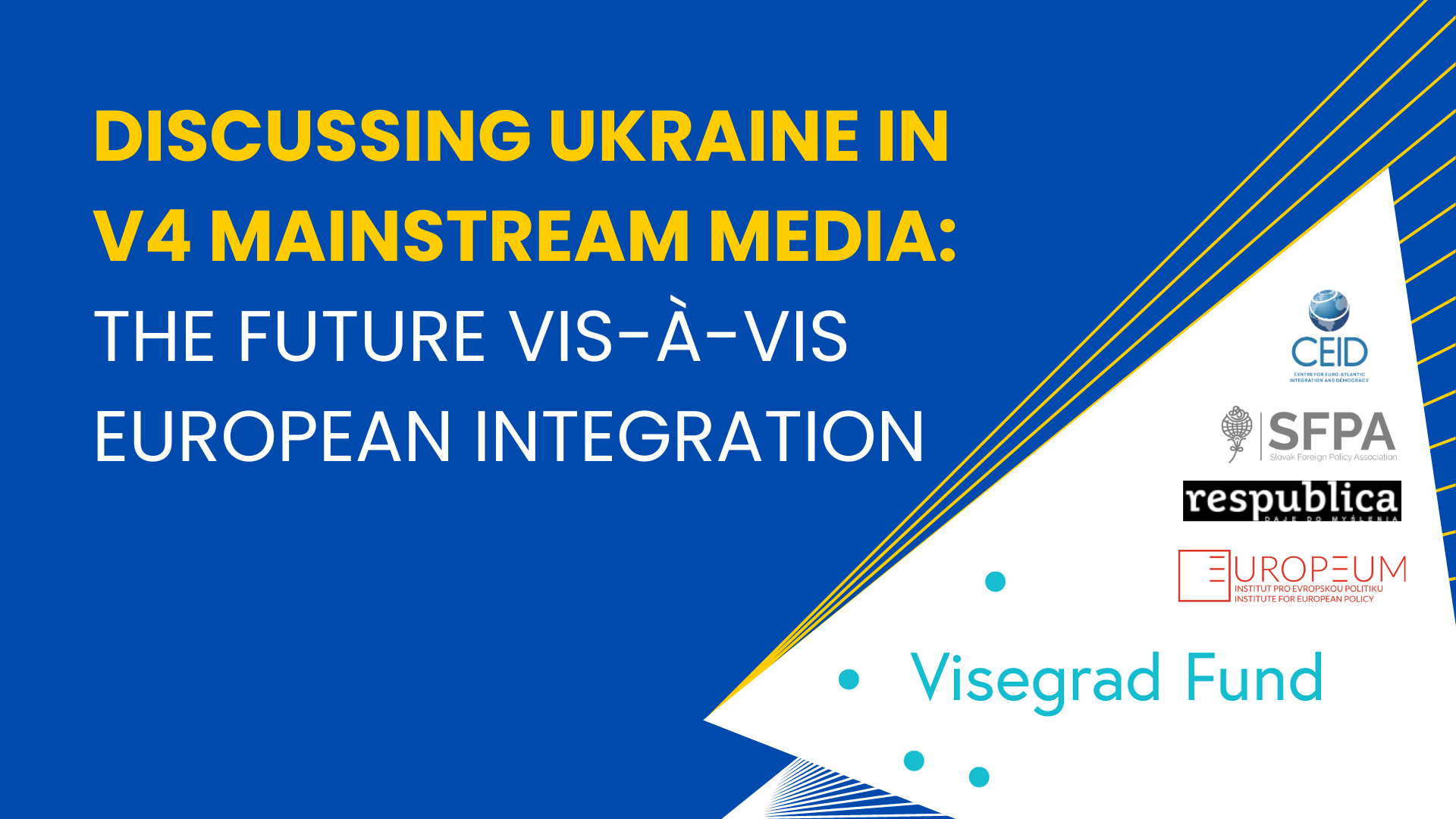Warsaw Security Forum 2019: V4 Dialogue on Eastern Partnership
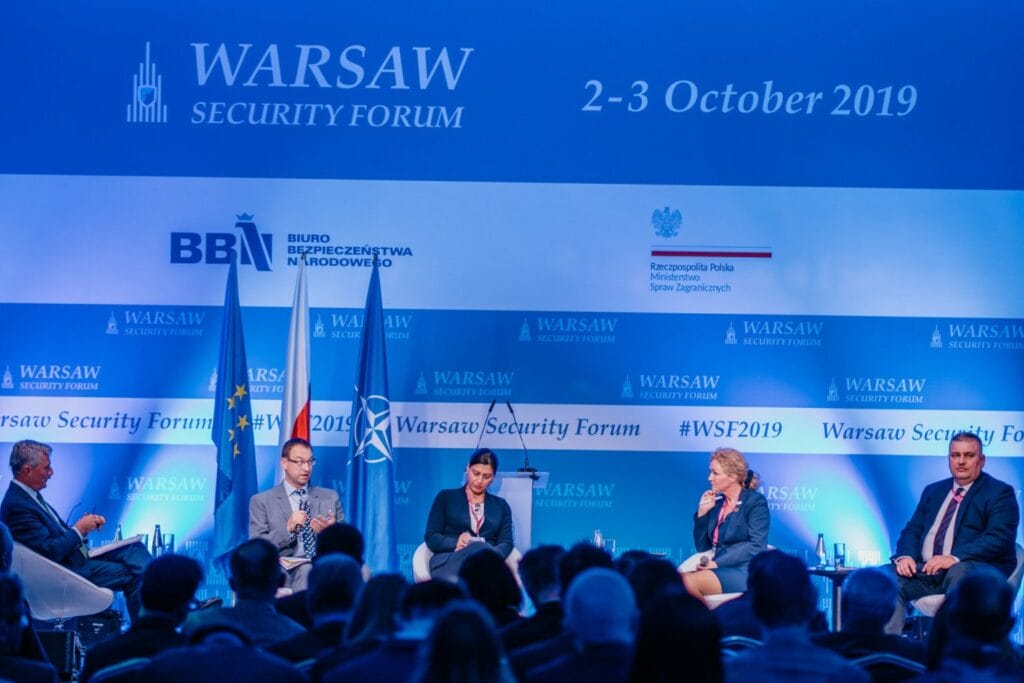
The initiative was realized with three partner organizations: the Slovak Security Policy Institute (Slovakia), EUROPEUM Institute for European Policy (Czech Republic) and Antall József Knowledge Centre of Political and Social Sciences (Hungary). The project was co-financed by the Governments of Czechia, Hungary, Poland and Slovakia through Visegrad Grants from International Visegrad Fund. The mission of the fund is to advance ideas for sustainable regional cooperation in Central Europe.
The aim of the project was to identify the most pressing security challenges currently faced by the Eastern Partnership (EaP) countries (Armenia, Azerbaijan, Belarus, Georgia, Moldova, Ukraine) and – in this context – to prepare common policy guidelines proposed by the Visegrad states (Czech Republic, Hungary, Poland, Slovakia) as a way forward for the region. Increasing the importance of EaP countries for EU foreign policy realization requires more initiative to be taken by the V4 states, which includes creating a common advocacy platform to further the Eastern Partnership project. Such an effort was made in the framework of the project, which included an expert roundtable and a High-Level Session at the Warsaw Security Forum plenary, and convened over 60 experts from V4 and EaP countries, as well as an audience of over 300 participants.
The deliverables of the project were the following:
- Roundtable “Discussing the Eastern Partnership 2.0: Visegrad States’ Perspectives” (2nd October 2019), Warsaw, Poland. The purpose of the roundtable was to gather representatives of the public administration, think-tanks, Academy, and media from countries of the V4 group and member states of Eastern Partnership to discuss the democratic transition experience of the Visegrad states and what lessons-learned where there for the EU’s Eastern Neighborhood. The event gathered over 50 experts, including 8 speakers.
Moderator:
- Adam Reichardt – Editor-in-Chief, New Eastern Europe
Speakers:
- Beata Surmacz, Ph.D.: Associate Professor at Maria Skłodowska Curie University in Lublin (Poland)
- Zbyněk Pavlačík, Director and Co-founder, Jagello 2000 (Czech Republic)
- Jaroslav Kurfürst, Special Envoy for the Eastern Partnership, Ministry of Foreign Affairs of the Czech Republic (Czech Republic)
- Peter Dobrowiecki – Author, Head of the EU-V4 Office, Antall József Knowledge Centre (Hungary)
- Peter Stepper – Author, International Relations Manager at Security Policy Office, Antall József Knowledge Centre (Hungary)
- Danylo Lubkivsky – Member of the Board of Management, Open Ukraine Foundation, Advisor to the Prime Minister of Ukraine (2014-2016), Deputy Foreign Minister of Ukraine (2014) (Ukraine)
- Borys Tarasyuk – Ambassador, Minister for Foreign Affairs of Ukraine (1998-2000, 2005-2007), Member of the Ukrainian Parliament (2002-2019) (Ukraine)
- Andrew A. Michta – Dean of the College of International and Security Studies at George C. Marshall European Center for Security Studies, USA
2. High-level session “The Eastern Partnership at 10” – (3rd October 2019), Warsaw, Poland. The discussion highlighted the main challenges both the EU and EaP states are facing after 10 years since the beginning of the initiative. The discussion showcased the perspectives of two founding states of the project (Poland and Sweden) and Eastern Partnership states (Belarus and Georgia). The session gathered an audience of 300 Warsaw Security Forum participants.
Moderator:
- Terry Martin – Senior News Anchor, Deutsche Welle TV, Germany
Speakers:
- Jan Hofmokl – Director at Eastern Division, Ministry of Foreign Affairs of the Republic of Poland
- Anna Westerholm – Ambassador for the Eastern Partnership, Ministry for Foreign Affairs, Sweden
- Oleg Kravchenko – Deputy Minister of Foreign Affairs, Belarus
- Sophie Katsarava – Chairperson, Committee on Foreign Affairs, Parliament, Georgia
A full recording of the High-Level Session “The Eastern Partnership at 10”.
3. Policy guidelines for the Eastern Partnership partner states from each of our states perspective (Slovak, Hungarian, Czech, Polish respectively).
The purpose of this output was to produce a tangible set of guidelines for the EaP states in a form of compilation of policy papers, that include the perspective from each of the V4 states on different policy issues and the Partnership’s future as a whole. The so-formed White Paper has the potential to benefit the EaP partner states via highlighting the best practices and insight from Visegrad states.
This set of policy papers followed the debate started during Warsaw Security Forum 2019 about the EaP’s future in the light of its 10th anniversary. White Paper with a compilation of policy papers:
- contributed as a final product of the WSF’s take on the EaP, rising awareness about this topic;
- included an important aspect of the V4 experts’ cooperation over understanding the EaP and its promotion, and therefore brought together policy experts from the V4 states;
- had a tangible outcome in some concrete policy proposals included in the policy papers;
- promoted the idea of the V4 group as an active partner and advocate of the Eastern Partnership.
The chapters of the Policy guidelines are available to download below:
- B. Kot – Polish Guidelines for the Eastern Partnership
- M. Masarikova – Slovak Guidelines for the Eastern Partnership
- P. Dobrowiecki, P. Stepper – Hungarian Guidelines for the Eastern Partnership
- P. Havlicek – Czech Guidelines for the Eastern Partnership
The project was realized at the 6th edition of the Warsaw Security Forum, the biggest international security and defense conference in the Central and Eastern Europe region. The 2019 edition took place on 2-3 October and focused on several issues including the 70th anniversary of NATO, 10 years of the Eastern Partnership project, the 20th anniversary of Polish membership in NATO, and 15 years of Polish membership in the EU. This year the conference became a discussion and networking platform for 1500 participants from 60 countries, including more than 170 world-class speakers, and over 100 journalists.







